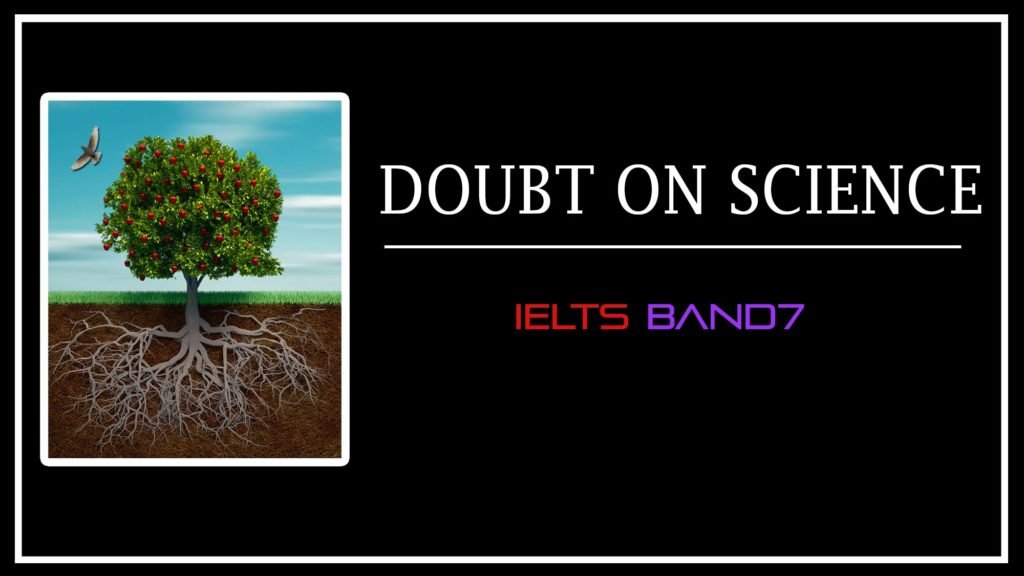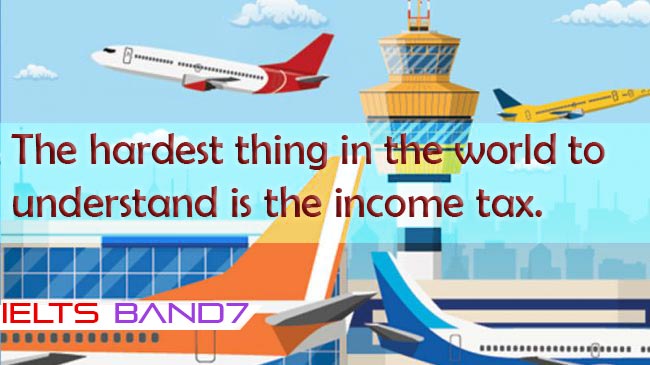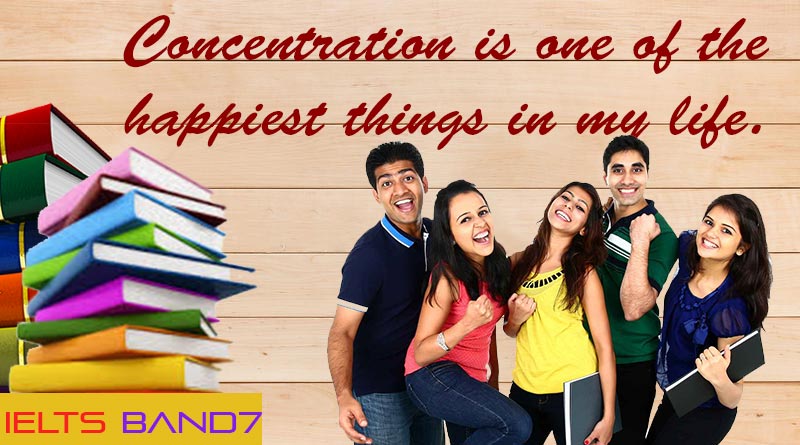You should spend about 20 minutes on the Questions 1-10 which are based on the reading passage, 1 below.

DOUBT ON SCIENCE
[Para 1]
We live in an age when all manner of scientific knowledge—from the safety of fluoride and vaccines to the reality of climate change—faces organized and often furious opposition. Empowered by their own sources of information and their own interpretations of research, doubters have declared war on the consensus of experts. There are so many of these controversies these days, you’d think a diabolical agency had put something in the water to make people argumentative. And there’s so much talk about the trend these days—in books, articles, and academic conferences—that science doubt itself has become a pop-culture meme. In the recent movie Interstellar, set in a futuristic, downtrodden America where NASA has been forced into hiding, school textbooks say the Apollo moon landings were faked. In a sense, all this is not surprising. Our lives are permeated by science and technology as never before. For many of us, this new world is wondrous, comfortable, and rich in rewards—but also more complicated and sometimes unnerving. We now face risks we can’t easily analyze.
[Para 2]
We’re asked to accept, for example, that it’s safe to eat food containing genetically modified organisms (GMOs) because, the experts point out, there’s no evidence that it isn’t and no reason to believe that altering genes precisely in a lab is more dangerous than altering them wholesale through traditional breeding. But to some people the very idea of transferring genes between species conjures up mad scientists running amok—and so, two centuries after Mary Shelley wrote Frankenstein, they talk about Frankenfood.
[Para 3]
The world crackles with real and imaginary hazards, and distinguishing the former from the latter isn’t easy. Should we be afraid that the Ebola virus, which is spread only by direct contact with bodily fluids, will mutate into an airborne superplague? The scientific consensus says that’s extremely unlikely: No virus has ever been observed to completely change its mode of transmission in humans, and there’s zero evidence that the latest strain of Ebola is any different. But type “airborne Ebola” into an Internet search engine, and you’ll enter a dystopia where this virus has almost supernatural powers, including the power to kill us all.
[Para 4]
In this bewildering world we have to decide what to believe and how to act on that. In principle that’s what science is for. “Science is not a body of facts,” says geophysicist Marcia McNutt, who once headed the U.S. Geological Survey and is now editor of Science, the prestigious journal. “Science is a method for deciding whether what we choose to believe has a basis in the laws of nature or not.” But that method doesn’t come naturally to most of us. And so we run into trouble, again and again.
[Para 5]
The trouble goes way back, of course. The scientific method leads us to truths that are less than self-evident, often mind-blowing, and sometimes hard to swallow. In the early 17th century, when Galileo claimed that the Earth spins on its axis and orbits the sun, he wasn’t just rejecting church doctrine. He was asking people to believe something that defied common sense—because it sure looks like the sun’s going around the Earth, and you can’t feel the Earth spinning. Galileo was put on trial and forced to recant. Two centuries later Charles Darwin escaped that fate. But his idea that all life on Earth evolved from a primordial ancestor and that we humans are distant cousins of apes, whales, and even deep-sea mollusks is still a big ask for a lot of people. So is another 19th-century notion: that carbon dioxide, an invisible gas that we all exhale all the time and that makes up less than a tenth of one percent of the atmosphere, could be affecting Earth’s climate.
[Para 6 ]
Even when we intellectually accept these precepts of science, we subconsciously cling to our intuitions—what researchers call our naive beliefs. A recent study by Andrew Shtulman of Occidental College showed that even students with an advanced science education had a hitch in their mental gait when asked to affirm or deny that humans are descended from sea animals or that Earth goes around the sun. Both truths are counterintuitive. The students, even those who correctly marked “true,” were slower to answer those questions than questions about whether humans are descended from tree-dwelling creatures (also true but easier to grasp) or whether the moon goes around the Earth (also true but intuitive). Shtulman’s research indicates that as we become scientifically literate, we repress our naive beliefs but never eliminate them entirely. They lurk in our brains, chirping at us as we try to make sense of the world.
[Para 7 ]
Most of us do that by relying on personal experience and anecdotes, on stories rather than statistics. We might get a prostate-specific antigen test, even though it’s no longer generally recommended, because it caught a close friend’s cancer—and we pay less attention to statistical evidence, painstakingly compiled through multiple studies, showing that the test rarely saves lives but triggers many unnecessary surgeries. Or we hear about a cluster of cancer cases in a town with a hazardous waste dump, and we assume pollution caused the cancers. Yet just because two things happened together doesn’t mean one caused the other, and just because events are clustered doesn’t mean they’re not still random.
[Para 8]
We have trouble digesting randomness; our brains crave pattern and meaning. Science warns us, however, that we can deceive ourselves. To be confident there’s a causal connection between the dump and the cancers, you need statistical analysis showing that there are many more cancers than would be expected randomly, evidence that the victims were exposed to chemicals from the dump, and evidence that the chemicals really can cause cancer.
[Para 9]
Even for scientists, the scientific method is a hard discipline. Like the rest of us, they’re vulnerable to what they call confirmation bias—the tendency to look for and see only evidence that confirms what they already believe. But unlike the rest of us, they submit their ideas to formal peer review before publishing them. Once their results are published, if they’re important enough, other scientists will try to reproduce them—and, being congenitally skeptical and competitive, will be very happy to announce that they don’t hold up. Scientific results are always provisional, susceptible to being overturned by some future experiment or observation. Scientists rarely proclaim an absolute truth or absolute certainty. Uncertainty is inevitable at the frontiers of knowledge.
[Para 10]
Sometimes scientists fall short of the ideals of the scientific method. Especially in biomedical research, there’s a disturbing trend toward results that can’t be reproduced outside the lab that found them, a trend that has prompted a push for greater transparency about how experiments are conducted. Francis Collins, the director of the National Institutes of Health, worries about the “secret sauce”—specialized procedures, customized software, quirky ingredients—that researchers don’t share with their colleagues. But he still has faith in the larger enterprise.
Questions 1-7
Do the following statements agree with the information given in the reading passage 1?
In boxes 1-7 on your answer sheet, write
TRUE if the statement agrees with the information
FALSE if the statement disagrees with the information
NOT GIVEN if there is no information on it.
- Mary Shelly wrote Frankenstiene.
- Ebola virus is likely to change its mode of transmission and will become an air borne disease.
- As per Charles Darwin, humans are ancestors of whales and other deep-sea mollusks. Humans tend to stick to their belief even though the scientific facts are known to them.
- With knowledge base increasing rapidly, there is more doubt on the facts presented by science than ever before.
- The absolute truth lies in the words of the scientists.
Questions 8-13
Choose the correct letter,A,B,C,D.
Write the correct letter in boxes 8-13 of your answer sheet.
8. Marcia McNutt, the once head of US, Geological survey is now associated with the __________ magazine.
A.Science
B. Nat Geo
C. Time
D. The New York Times
9. In which of the following movie, it was depicted that NASA has been forced into hiding and Apollo moon landings were faked.
A. The Interstellar
B. Inception
C. Eat, Pray, Love
D. Life, as we know it.
10. “Earth spins on its axis and orbits the sun”. The statement was given by which of the following scientist.
A. Charles Darwin
B. Galileo
C. Marcia McNutt
D. Albert Einstein
ANSWERS
When solving the reading passage, it is best to skim through the passage and make notes along with the passage. You can even underline the important points as you read along the passage.
- True
- False
- True
- True
- Not Given
- False
- A
- A
- B




